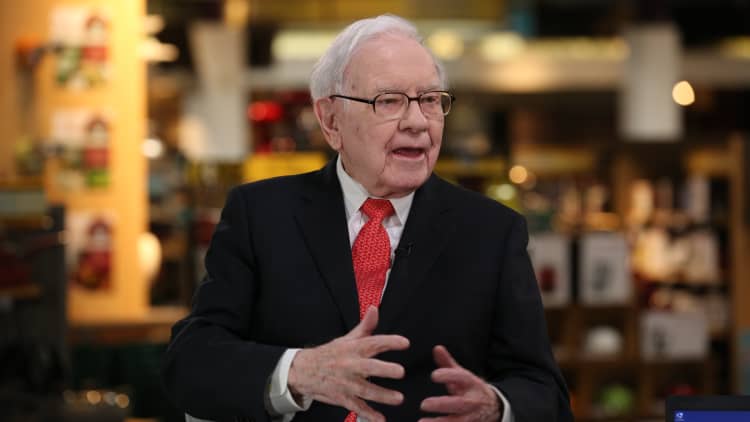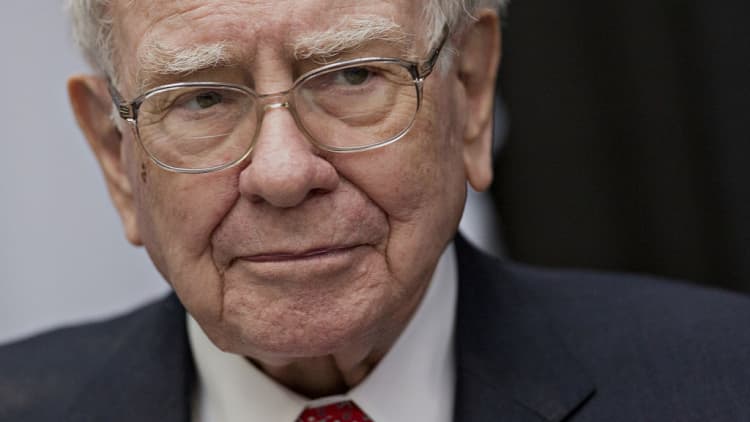
If Warren Buffett wasn't the head of Berskshire Hathaway and instead worked as a financial advisor for investors, he'd probably have a tough time holding a job these days.
That's because the man known as one of the greatest investors of all-time often underperforms the market, according to an analysis by Michael Crook, head of Americas investment strategy at UBS.
Crook this week updated a chart he first presented in 2015 that showed over daily, monthly and even on a five-year basis, Buffett's Nebraska-based conglomerate often falls short of the S&P 500.
Buffett frequency of outperformance
The point, of course, isn't that investors should shun Buffett. Over time, the results more than justify the patience. But the question is whether in the current climate of short-termism and the demand for immediate results Buffett would last in the business if he didn't already have his reputation.
As Crook wrote:
The high long-term returns achieved by Berkshire Hathaway required patience through extended underperformance. My conclusion: Since most investors would fire Warren Buffett, they are also probably too quick to sell something out of a portfolio when it hasn't worked over 1-5 years (e.g. specific stocks, asset classes, and/or managers).
Buffett's outperformance over the entire period: 350 percent.
Buffett himself has long preached about the importance of long-range thinking. He doesn't dwell on his company's short-term performance, and he and J.P. Morgan Chase CEO Jamie Dimon recently floated the idea of ending the corporate practice of providing quarterly guidance to investors.
But that might not matter to some of today's investors.
"I'm actually seeing the same short-termism now in retail clients, and it's happening more often because people look at the last 10 years and say, 'You know, I thought I would have done better,'" said Mitch Goldberg, president of ClientFirst Strategy. "They forget that they're either moderate-risk investors or growth and income-based investors. They've been investing within their risk tolerance, and a lot of people are thinking, 'I don't need to worry about my risk tolerance anymore.'"
That could be happening at exactly the wrong time.
The market is getting trickier, with volatility increasing as the dynamics that have driven the decadelong bull changing. After a protracted span of approaching the market cautiously, the desire for investors to escape the shackles of risk-aversion is classic late-cycle behavior.
"I speak to financial advisors all the time. Whenever we see each other, we all feel the investing public has forgotten about the concept of risk" Goldberg said. "Investors were overly focused on risk from 2009 to 2016. And now their attitude toward risk has gone completely the other way. This is very emblematic of end-of-bull-market performance."



